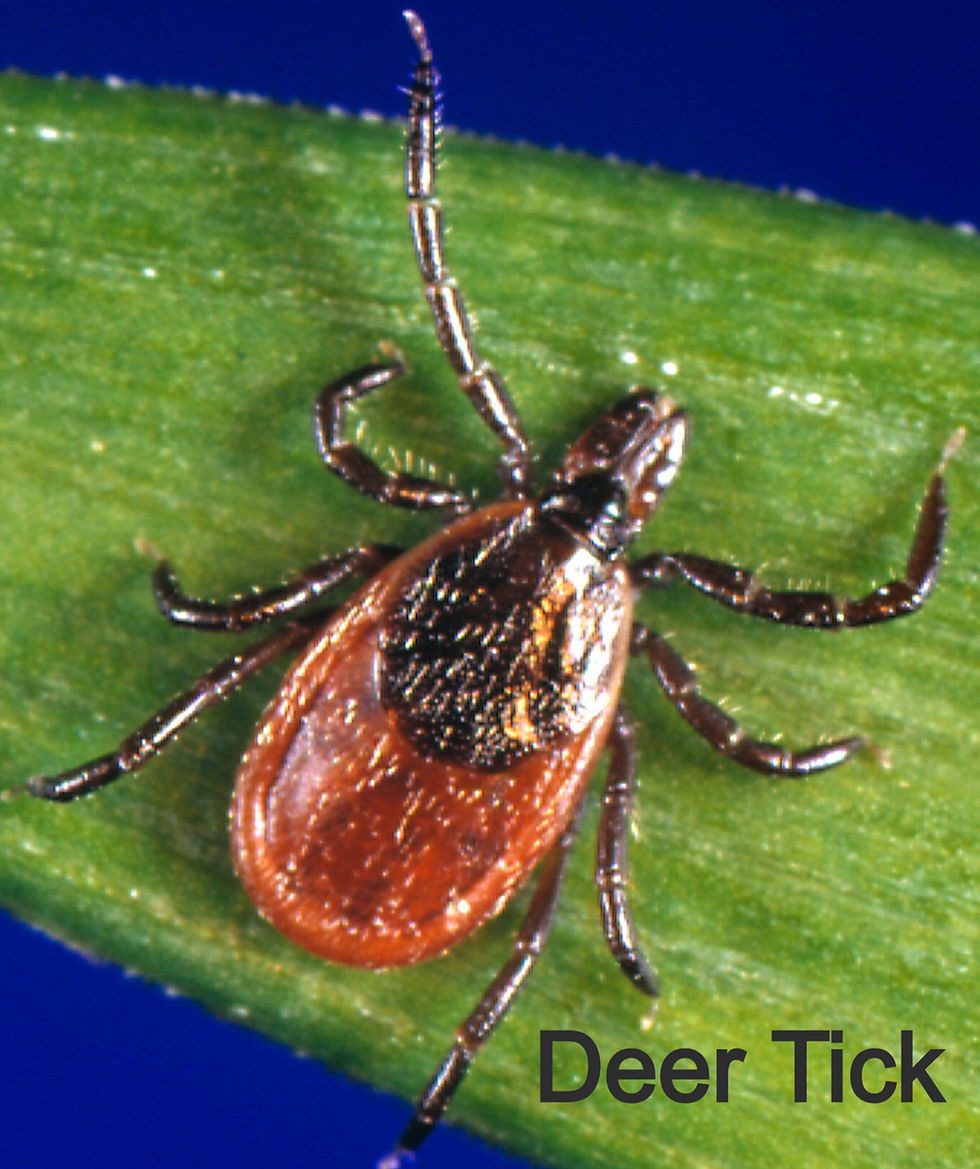May is Lyme Disease Awareness Month
- Animal Care Gloucester

- May 20, 2020
- 2 min read
As the weather gets warmer and the days get longer, you may find your family and your pets spending more time outside. With all the social distancing we are currently experiencing, you may be venturing further off the beaten path in an effort to keep your four-legged friend entertained.

Since May is highlighted as Lyme Disease Awareness Month this is an excellent time to learn about the precautions you should be taking for your pets (and yourself).
Lyme disease can affect both animals and humans, so it is very important to understand the ways you can avoid coming into contact with this potentially devastating disease
Lyme disease is a tick-borne illness caused by the bacterium Borrelia burgdorferi. Deer ticks can carry the bacteria that causes Lyme disease.
In the past, Lyme disease was thought to only be in Lyme "endemic" areas, however this nasty and complicated disease may be found throughout the entire United States and Europe. Additionally, ticks carry a wide variety of other serious bacterial infections. In the United States, an estimated 1 in 23 dogs will test positive this year and in Gloucester County an estimated 1 in 18 dogs will test positive this year.

So what do we recommend to help keep your pets safe from Lyme disease?
Here are a few simple suggestions. There
is a Lyme disease vaccine available for dogs. Unfortunately, at this time there is no vaccine developed for cats.
Talk to your vet at your next visit about the
most efficient prescription flea and tick preventatives. Although slightly more costly than over-the-counter products, prescription varieties are considered much safer and more effective.
Since ticks thrive in high grasses, keep your lawns mowed short particularly in areas in which your pets spend time. Make sure that any pesticides you are using are pet-safe.
Symptoms of Lyme disease include:

Fever
Loss of appetite
Reduced energy
Lameness (can be shifting, intermittent, and recurring)
Generalized stiffness, discomfort, or pain
Swelling of joints
Symptoms can progress to kidney failure, which can be fatal. Serious cardiac and neurological effects can also occur.
If you are concerned your pet may be at risk for Lyme disease exposure or is exhibiting the following symptoms, please contact us to set up an appointment today.
_edited_edited.png)





Comments